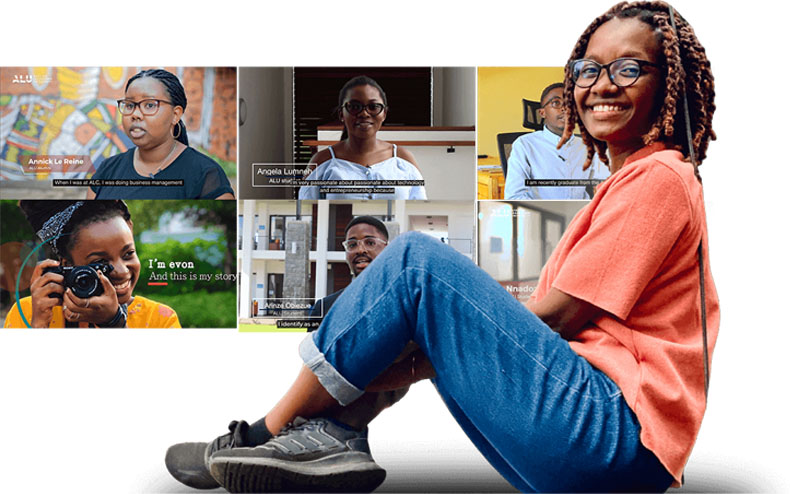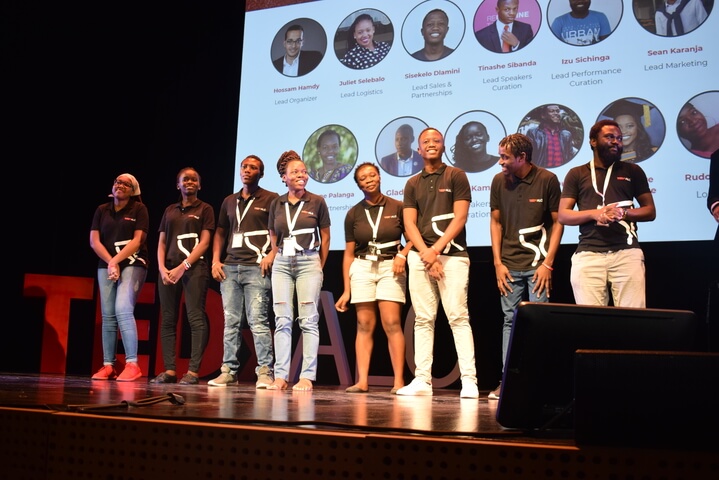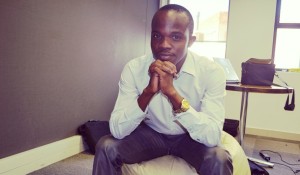Thomas A. Edison once said, “I have not failed. I’ve just found 10,00 ways that won’t work.” The art of embracing failure is, unfortunately, one that not many have mastered. It’s one of those things that is often easy to say but quite hard to do. We sat down to speak with Sisekelo Dlamini, one of our students whose biggest failure taught him his greatest lesson on bouncing back.
“I was raised by strong women”, he proudly starts. Between his grandmother and mother, Sisekelo’s early childhood days were shaped by these women who taught him his first lessons on love, family and hard work. His grandmother, a firm believer in the mantra ‘do it yourself’, fueled his curiosity to find multiple solutions to any problem. Whenever he brought a problem to her – be it a fight with a friend or a missing resource for school – she would often challenge him to dig deeper and figure out the solution on his own. Her encouragement trained him to become a problem-solver from a young age. And as the firstborn in a single-parent family, he soon found himself solving many of his siblings’ problems too.
It was this desire to solve problems that led Sisekelo to launch his first venture, eSwatini’s first online shopping platform. As a developing country with a population of less than 2 million, eSwatini did not have many of the technologies such as online shopping which was popular in many bigger countries. Sisekelo remarks, “I found this really unconventional, especially in our generation. I knew I needed to find a solution.” So, using the knowledge that he had gained from interning at global financial institutions, Sisekelo set out to launch eSwatini’s first online platform, allowing users to shop using mobile money and a banking card. Over the course of the next 3-4 years, he went around building and pitching the idea to his network and to various stakeholders including the country’s Central Bank. This project gained a lot of support and before long, it felt as though one of his wildest dreams would soon come to fruition.
At least that was what Sisekelo thought. But after years and months of laying down foundations, things soon hit a dead end when it emerged that the country’s strict regulations would not accommodate this innovation. What was meant to be his biggest success soon turned into his biggest failure. Years of hard work and most of his savings slowly went down the drain and Sisekelo had to face his supporters and break the bad news. He narrates, “Going back to people who had supported me was tough but also a humbling experience. These were people who had invested their time, energy and brand just to support me. Now, I can’t imagine how difficult it would be to go back to them with a new idea. I think I’m still paying for this failure”.
And in a continent unfortunately faced with one of the highest startup failure rates, Sisekelo’s first reaction may have been to quit and shy away from future challenges. Especially when this failure did not just cost him a lot of money, but it also impacted his reputation as a young entrepreneur. He had every reason to give up. Yet, he admits that this experience became his greatest motivation to embrace failure, “It made me realize that we are not guaranteed success. And because of that, we shouldn’t be afraid of failure”.
Among his many lessons, Sisekelo also learned how to lead others through failure. Having recruited other people to join him, he had the unfortunate task of letting them go. He reflects, “When we failed, the blow was easier for me because I was young and still in school. But my workers had sacrificed so much. As their leader, I realized I needed to empower my people with enough networks, skills and courage to bounce back from failure”.
As we wrap up the interview, I ask him the question many graduates often shy away from, “what’s next?” He laughs, and then answers, “I want to build products that I’m excited about and bring impact”. He says this with so much gusto that I am hesitant to ask, “Are you scared of failing again?”
His final words are where his confidence really shines through. “The size of your failures determines the size of your success. If you dream small you will fail small. The greatest glow-ups are not without a set-up”. With those words, we finish with a powerful lesson for all to embrace – the art of failing is not in the moment where you fail, but in the time where you rise and try again.










